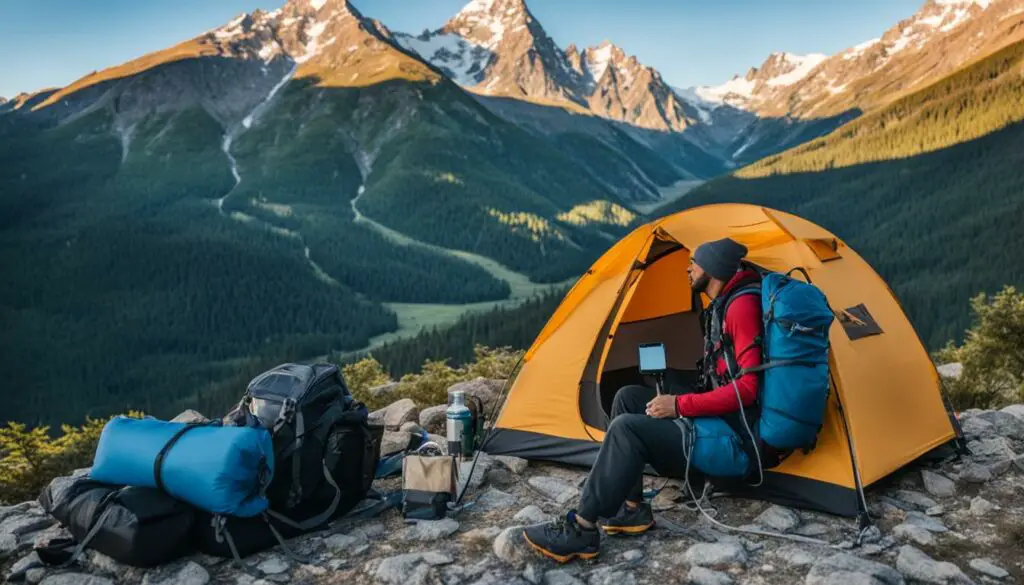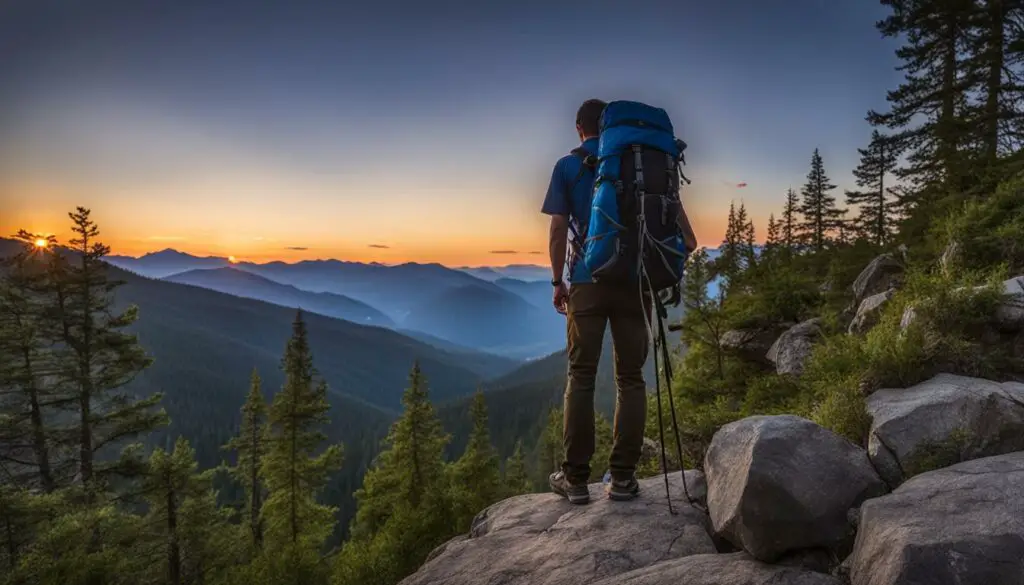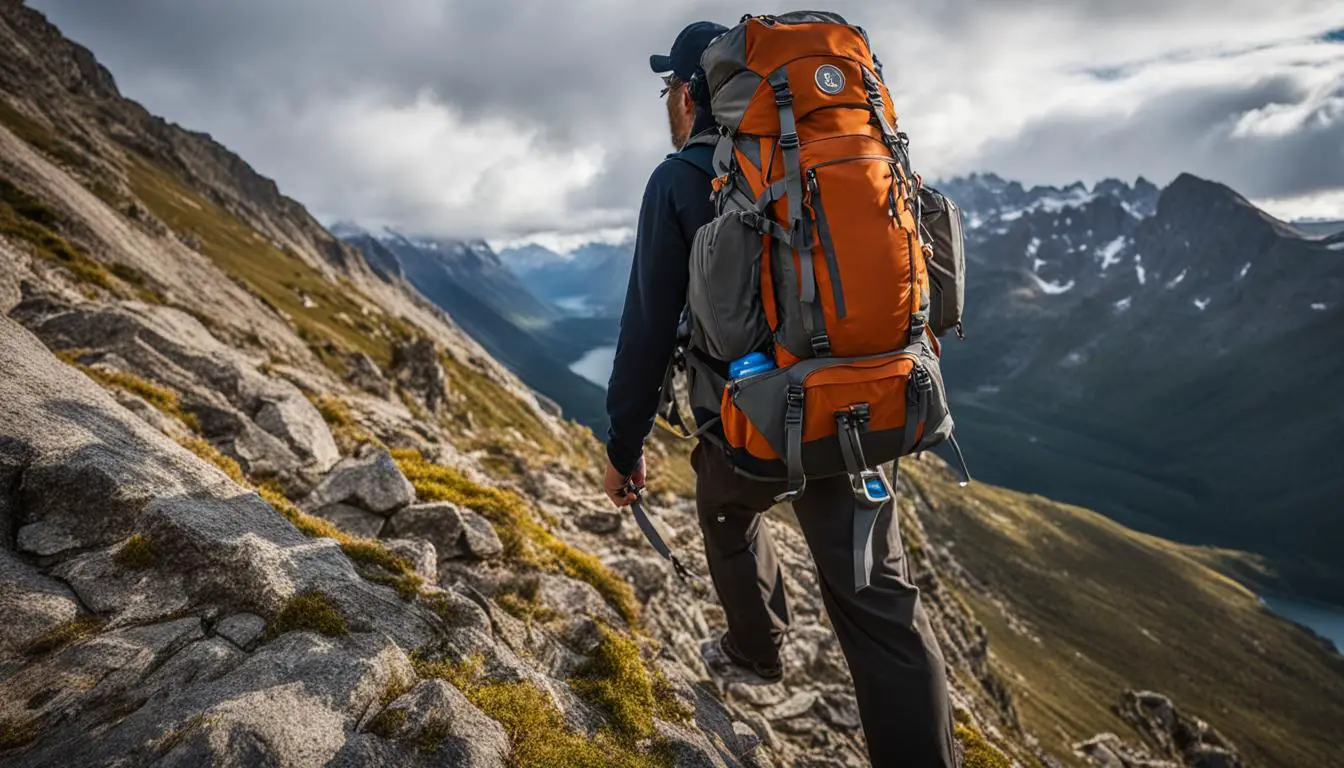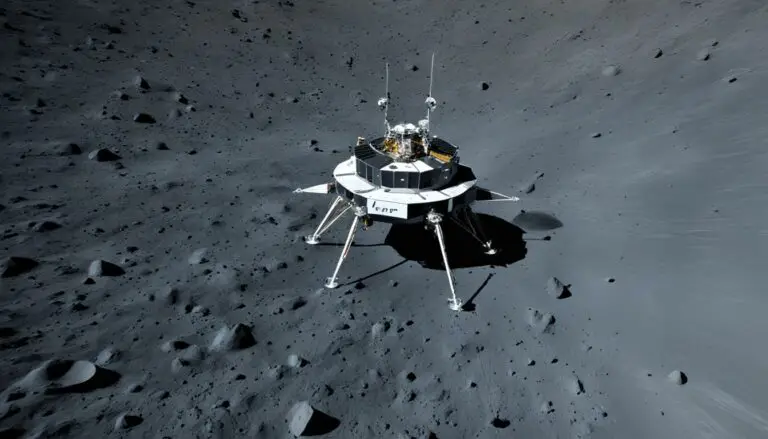Top Backpacking CPAPs: Find the Best for Your Trails
Originally posted on December 26, 2023 @ 9:04 pm
For someone who enjoys being outside and overcoming trails while camping, having sleep apnea doesn’t have to hold you back. Realizing the importance of getting a good night’s sleep while surrounded by nature, you are probably searching for the top CPAP machine for backpacking. It’s a search for harmony between the exciting adventure of hiking and taking care of your well-being.
Fear not, adventure seekers, because modern technology has brought forward advanced CPAP for backpackers that are both ultralight and compact, ensuring you don’t compromise on your therapeutic needs or your love for hiking. The latest compact CPAP for hiking and portable CPAP for camping are designed with you in mind, offering seamless sleep therapy merged with the convenience of mobility.
With the industry’s innovations, you’re no longer tied down to cumbersome devices; instead, you can carry sleep apnea treatment in your backpack that’s as prepared for adventure as you are. Let’s dive into the options that can make your outdoor dreams a restful reality.
Key Takeaways
- Discover the most efficient ultralight CPAP machine options designed specifically for the avid backpacker.
- Technological advancements have led to the creation of advanced CPAP for backpackers that doesn’t add unnecessary weight to your gear.
- Size matters: finding a compact CPAP for hiking means you can trek further and sleep better under the stars.
- The versatility and reliability of a portable CPAP for camping enhance your overnight outdoor experience.
- Leverage the freedom to explore without sacrificing sleep quality thanks to the newest innovations in CPAP machines for backpacking.
Understanding Sleep Apnea and Backpacking
Embarking on a backpacking journey presents unique challenges for adventurers with sleep apnea, as the rugged landscapes and remote locations demand careful management of CPAP therapy. The crux of outdoor sleep apnea management lies in the balance between maintaining effective treatment and packing light for the trails.
The Challenge of Managing CPAP Therapy on the Trail
When you’re miles away from the nearest outlet, managing CPAP therapy requires a portable solution robust enough to contend with the off-the-grid environment. The necessity for a consistent power supply to your CPAP device, combined with the logistical issues of carrying this extra gear, means your choice of equipment must be both efficient and practical.

Considering the weight constraints and power limitations, many adventurers opt for a portable CPAP for camping, designed to deliver the treatment you need without overburdening your pack.
Non-CPAP Techniques for Coping with Apnea While Backpacking
Alongside CPAP technology, there are also non-CPAP sleep apnea solutions that can aid backpackers. These techniques and devices, which include positional therapy and oral appliances, may offer temporary relief, allowing you to rest without heavy machinery. They’re particularly useful in managing mild to moderate sleep apnea when electricity is scarce.
Importance of Choosing the Right CPAP for Outdoor Adventures
Selecting the most suitable CPAP machine is not a decision to take lightly; choosing the right CPAP will enhance both your sleeping comfort and overall backpacking experience. The right device should be a harmonious blend of portability, power efficiency, and reliable performance under the stars.
| Feature | Importance for Backpackers | Consideration |
|---|---|---|
| Weight | Crucial for maintaining a light pack | Opt for an ultralight model |
| Battery Life | Essential for sustained overnight use | Look for extended battery options |
| Portability | Must be easy to carry and set up | Consider devices with carrying cases and compact designs |
| Ruggedness | Ability to withstand outdoor elements | Select models with durable construction |
Best CPAP for Backpacking: Compact and Lightweight Options
For the outdoor enthusiast searching for the best CPAP for backpacking, the ideal solution is one that offers convenience without sacrificing performance. You need a CPAP machine that’s both ultralight and robust enough to handle the rigors of the trail. With today’s technology, you no longer have to choose between enjoying the great outdoors and getting a good night’s sleep.
The ResMed AirMini has established itself as a favorite among campers due to its size and travel-ready features. What’s notable about this unit is the waterless humidification technology, meaning you can say goodbye to the hassle of lugging around distilled water. It represents the pinnacle of ease for backpackers desiring a comfortable and restorative sleep after a day’s hike.

Exploring further, we find that products like the Breas Z2 Auto CPAP Machine and the Transcend Micro Auto-CPAP Machine are frequently cited as top-rated CPAPs for outdoor enthusiasts. These devices not only offer compact design but also adapt automatically to your breathing requirements, and interestingly, they allow for data tracking through smartphone applications—an invaluable feature for those who like to be in control of their sleep therapy.
Let’s take a closer look at these two market leaders:
| Feature | ResMed AirMini | Breas Z2 Auto CPAP | Transcend Micro Auto-CPAP |
|---|---|---|---|
| Weight | 0.66 lbs | 0.69 lbs | 0.48 lbs |
| Humidification | Waterless (HumidX system) | N/A | N/A |
| Pressure Adjustment | Auto-adjusting | Auto-adjusting | Auto-adjusting |
| Smartphone Compatible | Yes | Yes | Yes |
| Power Options | AC, DC, and battery | Battery integrated | Battery integrated |
| Special Features | FAA Approved for in-flight use | Qtube Muffler included | FAA Approved, quiet operation |
The table above provides a clear picture of how each of these models might serve your backpacking needs. Whether you prioritize minimal weight, noise reduction, or the convenience of a waterless humidifier, there’s an ultralight CPAP machine designed to deliver a restful night under the stars. Ensure your next wilderness adventure is as rejuvenating as possible by selecting a CPAP machine that’s catered to your lifestyle.
Portable CPAP for Camping: Power Solutions and Battery Life
When you’re far from the nearest outlet, keeping your CPAP device powered is a paramount concern. As a backpacker, you understand the importance of having a reliable source of energy for your CPAP machine, and the evolving world of portable cpap power solutions has brought forth innovative options to ensure you never miss out on a restorative night’s sleep under the stars.
Exploring Solar Charging Capabilities
Solar power brings a compelling promise of independence from the grid. Especially for you, the adventurous spirit with a versatile cpap for on-the-go use, solar charging cpap options like the Transcend Solar Charger can significantly extend your trip’s autonomy. Though solar charging is inherently subject to weather and geographic conditions, with proper planning, it can be a game-changer in ensuring your device stays powered.
Maximizing Battery Efficiency in Remote Locations
To maintain your CPAP therapy, optimizing battery life cpap becomes an essential skill. Techniques such as using a lower pressure setting where possible, disconnecting the device during idle periods, and employing a well-insulated travel case to protect your CPAP’s battery from extreme temperatures will maximize efficiency, so your nights remain undisturbed.
Travel CPAP Battery Types and Their Performances
Understanding the differences between battery types is key to choosing the right power solution for your needs. Lithium-ion batteries, while more costly, offer longer battery life cpap and are typically lighter in weight, making them an ideal companion for your trek. Here’s a quick comparison of common battery types:
| Battery Type | Average Run Time | Charge Time | Weight |
|---|---|---|---|
| Lithium-ion | 8-15 hours | 2-4 hours | Light |
| Nickel-Metal Hydride | 5-7 hours | 8-10 hours | Medium |
| Lead-acid | 10-14 hours | Over 10 hours | Heavy |
Whether you’re exploring a national park or embarking on a multi-day hike, portable cpap power solutions are crucial for uninterrupted sleep therapy. Stay informed, plan wisely, and venture forth confidently, knowing that your CPAP device will keep powering through the nights, wherever your wanderlust leads you.
Ultralight CPAP Machine: Balancing Weight and Performance
For the intrepid backpacker, embarking on a journey into the wild requires meticulous planning, especially when you need to carry a CPAP machine. Enter the realm of the ultralight cpap machine; a beacon of hope for those who suffer from sleep apnea but yearn for outdoor adventures. These devices are engineered to reduce your load, making it easier to traverse challenging trails. With models like the Z1, tipping the scales at a mere 300 grams, the technology has certainly reached a benchmark for lightweight cpap for travel.
The key to selecting an ultralight CPAP is to ensure that reduced weight does not mean compromised performance. It’s about finding that sweet spot. The ideal efficient cpap for remote locations should come equipped with essential features such as humidification, diverse pressure settings, and noise reduction, ensuring your nights under the canopy are as restful as in your own bed. It becomes not only about saving space in your backpack but also ensuring a full night’s sleep that rejuvenates the body and prepares it for the day ahead.
Let’s face it, though; even the best ultralight machine must be a workhorse at heart. You need a CPAP that’s as resilient as it is nimble, one that won’t let you down when the sun sets and the campfire fades. As you choose your next ultralight cpap machine, consider its durability, battery options, and ease of use in varying conditions. Remember, you are not just picking a travel accessory; you’re selecting a dependable health ally for your most remote and exhilarating travels.
FAQ
What are the best CPAP machines for backpacking?
For backpackers looking for a compact and reliable CPAP option, the ResMed AirMini, the Breas Z2 Auto CPAP Machine, and the Transcend Micro Auto-CPAP Machine are considered some of the best. These models offer advanced features such as waterless humidification and pressure adjustment, all in an ultralight package suited for the trail.
How do you manage CPAP therapy on the trail?
Managing CPAP therapy while backpacking involves choosing a portable cpap for camping that is lightweight and has a reliable power source. Using a device with a compatible travel battery pack or solar charging capabilities can ensure that your CPAP machine operates effectively throughout your trip.
Are there non-CPAP techniques for coping with apnea while backpacking?
Yes, there are non-CPAP alternatives for those who prefer not to carry a machine. Options such as oral appliances, positional therapy, and exercises to strengthen the airway muscles can be considered. However, it’s essential to consult with a healthcare provider before trying non-CPAP solutions.
Why is choosing the right CPAP for outdoor adventures important?
The right CPAP machine can make a significant difference in sleep quality and overall backpacking experience. A suitable device for outdoor adventures should be lightweight, portable, durable, and have a sufficient power solution for remote locations. Ensuring your CPAP meets these criteria will help maintain your therapy’s effectiveness while enjoying the wilderness.
How do solar chargers work with CPAP machines?
Solar chargers for CPAP machines are designed to harness sunlight to recharge batteries, which is especially useful for extended outdoor trips. For example, the Transcend Solar Charger can attach to compatible CPAP batteries, extending their life, although the effectiveness can vary with sunlight availability.
What is the best way to maximize battery efficiency for CPAP machines in remote locations?
To maximize battery efficiency, use a CPAP with a low power consumption, consider using a solar charger during the day, and turn off any unnecessary features that may drain the battery, such as heated humidification systems. Selecting energy-efficient CPAP batteries designed for travel use can also help extend their life.
What types of travel CPAP batteries are available and how do they perform?
Travel CPAP batteries come in different types, including lithium-ion and lead-acid. Lithium-ion batteries are generally lighter and have a longer lifespan, making them a popular choice for backpacking. Performance varies by brand and capacity, so it’s important to review specifications and user experiences for your particular CPAP model.
How do ultralight CPAP machines balance weight and performance?
Ultralight CPAP machines, like the Z1 model, prioritize minimal weight without compromising on performance. These machines are designed with necessary therapeutic features while using lighter materials and compact designs that do not burden backpackers. Despite their lightweight nature, they still provide the efficiency needed for effective treatment in remote locations.








